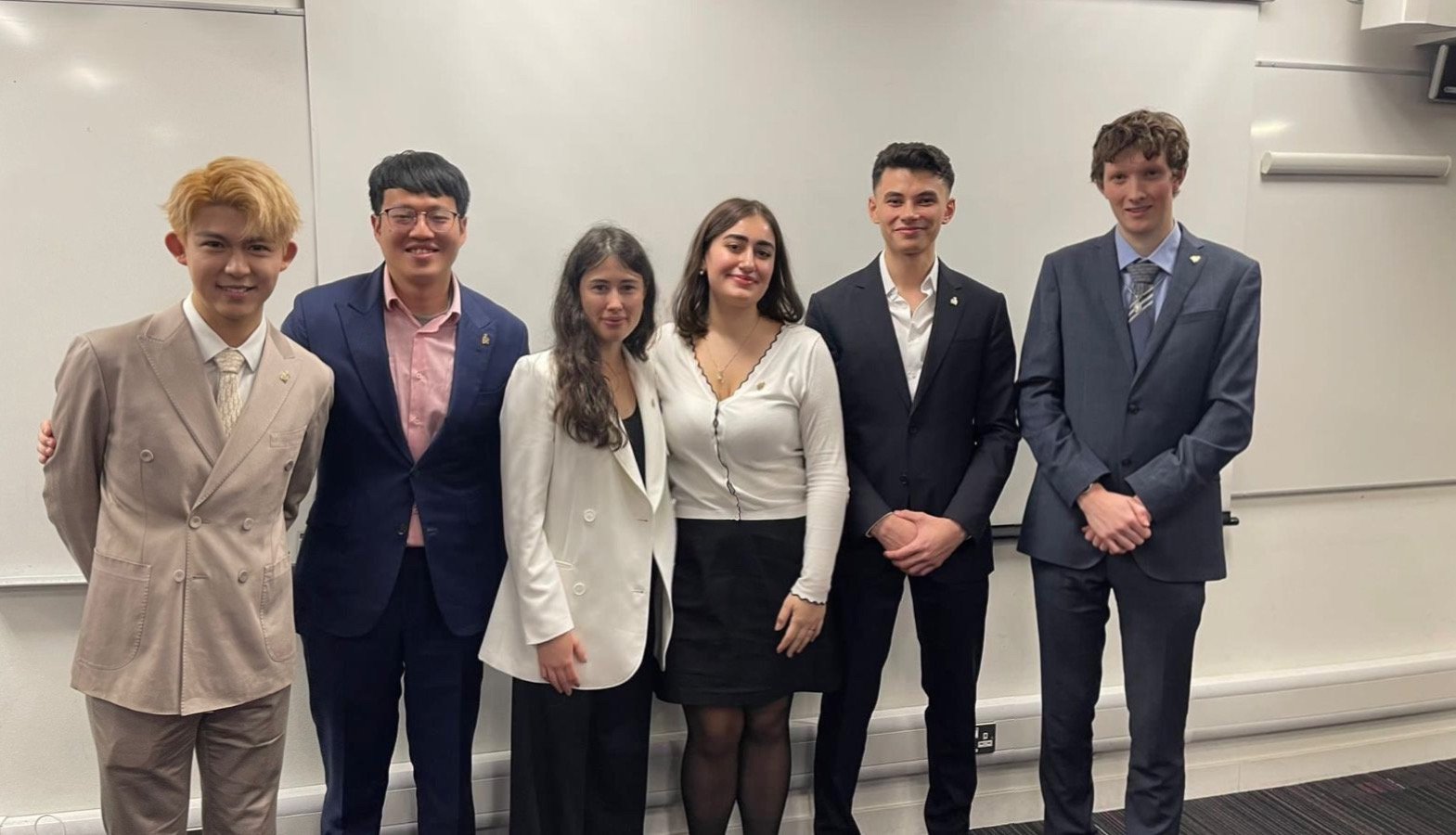Lost in Translation
Preserving the Army’s Linguistics Capability
Solving complex problems often requires a coming together of different people and experiences. This is as true in the private sector as it is in the public sector – and in the UK Armed Forces and Ministry of Defence, these attitudes come sharply into focus when trying to solve problems that will enable efficiency in military capability. Often, solving these problems helps with national security – so thinking in this way is by no means a bit of fluffy blue-sky speculation. In fact, it already takes place, and one example of this is the sponsorship of an Army linguistics problem for the Hacking for Ministry of Defence (H4MOD) course. The course sees university students from across the UK learn and apply Lean Start-up methodology to tackle critical defence challenges.
The crux of this problem surrounded the professionalisation of linguists working in Defence Intelligence. A team of students from King's College London, Department of War Studies threw themselves into this unique challenge during the Autumn 2023 term, proposing a solution that their Army Problem Sponsor found hugely valuable – and most importantly: viable.
The Significance at Hand: A Matter of National Security
The heart of this challenge is the professionalisation of linguists in Defence; in particular, those who practise niche languages critical to intelligence needs. Technology, unfortunately for them, has the potential to dilute their expertise. In an era where AI tools and even Google Translate can take on smaller linguistic tasks, Defence linguists are at risk of being overshadowed by online translation tools. “Do more with less" is what we often hear, and these tools carry the very real risk of disincentivising linguists from practising and retaining their language skills. What this leads to is a shortage of skilled professionals ready to interpret and pass on critical intelligence.
“This problem is hugely important to intelligence, with linguists at the forefront of this. It’s critical to keep these skills internal to Defence because of the security constraints - and to lose individuals after such a short time is a waste of talent that could be managed so much better.”
The team recognised the critical role linguists play in handling sensitive intelligence and working with the constraints of security-bound language requirements. The focus on retaining these skilled professionals extends beyond the immediate future and manpower shortages, it has very real implications for national security.
Team ‘Lost in Translation’, composed of Baojian Sui, Jonathan Koh, Natacha Mohler, Yeva Vardanyan, Younis Allosh and Martin Letore (pictured below), conducted 60 interviews with stakeholders from the military, academia and industry to test hypotheses before coming to their solution idea.
‘Lost in Translation’ student team.
Coming to Conclusions: A Three-Tiered Solution
Over a 12-week collaboration, the student team worked to truly figure out the identified problem, testing numerous ideas. Despite time constraints, the team adopted an approach that emphasised efficiency with a mantra of ‘spend smarter, not more’ that would ring delighted bells in any modern organisation’s ears – especially those looking to make such a big transformation.
The team outlined three recommendations as part of their solution:
Language Skills Maintenance: Allocating dedicated hours in the working week for language training, including personalised instruction akin to ‘italki’, aimed at maintaining and nurturing linguists' skills. This will combat skill loss, one of the main reasons that linguists fail recertification testing, and would balance the budget by allocating funding to more widely-used language practice courses.
Improved Advertisement and Communications: A strategic approach to inform Defence personnel about the optimal utilisation of their language skills for those already practising a secondary language.
Degree Pathway for Linguists: Although time limitations hindered exploration, the team emphasised the need for a degree pathway to track capability and manage investments effectively.
With the need to be as agile and budget friendly as possible, Lost in Translation used an approach that justified every spend, much to the delight of the team’s sponsor. The Problem Sponsor will take the team’s final report to an Internal Recommendations Board for approval.
“I loved the whole experience. The one thing I’d change? More time with the team. They did so much in such a short space of time, which is really down to the Lean Start-up methodology that emphasises conducting interviews as a vehicle of learning besides reading books and articles.”
The Value of Voice: The Impact on Defence
Reflecting on the student team’s impact, their Problem Sponsor stated: “If we implement this solution, it would significantly professionalise what Army Linguistics can offer to improve attraction, retention and job satisfaction. It could even pull people back into linguistics who may have stepped away from languages.”
Beyond the specific problem tackled, the course provided Defence with a diverse and external perspective on the problem, offering a cohesive model for future problem-solving. The students’ thorough research and varied perspectives enriched the entire process and provided valuable insights for future challenges. The viability of the proposed solution was the icing on the cake.
“No one has ever looked at professional development for linguists before, making the team’s input all the more valuable. I would have paid upwards of £50K in the civilian world for this level of intensive consultancy.”
At its core, this programme places first and foremost a 'mission-driven' approach. The H4MOD course addresses national issues cohesively, leveraging shared intelligence and diverse perspectives from students, industry professionals, and the Ministry of Defence. This approach contributes to a stronger, more informed Defence strategy – that is relevant and more reflective of the society that it serves.
Discussion, collaboration, and communication are key tenets within linguistics teams and intelligence teams alike. Likewise, these are key points when looking at how to solve problems that have your teams scratching their heads. Students, industry, and governments need to come together to address these types of problems and embrace these three tenets – using the best bits to tackle national issues that pertain to security.
Would you like to sponsor a problem? Get involved here.


